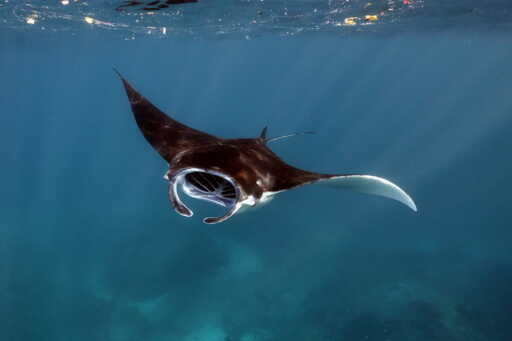New research has found that deep-sea mining in international waters could threaten at least 30 species of sharks, rays and chimaeras — many of which are already at risk of extinction. Chondrichthyes, the class of cartilaginous fish that includes sharks, rays and chimaeras, are among the most threatened vertebrates on Earth, with more than 37% of species at risk of extinction due to overfishing and habitat loss, the study notes. Now, scientists warn that these animals could face new threats if deep-sea mining kicks off in international waters. While commercial deep-sea mining has not yet started, some companies are looking to launch operations in the near future. Yet significant uncertainties remain about the environmental impacts of this proposed industry, in which miners would send heavy machinery into the deep ocean to collect valuable minerals, such as manganese, cobalt, copper and nickel. “Many animals haven’t been accounted for in the potential impacts of deep-sea mining,” Aaron Judah, lead author of the new study and a doctoral student at the University of Hawai‘i at Mānoa, told Mongabay. “There has been work on migrating fishes in the water column, invertebrates on the seafloor, and microbes — but a lot of the top predators have been left out of a lot of the discussions. There’s been recent work done in whales, but sharks and rays were just mostly not included whatsoever.” Whale sharks (Rhincodon typus) are one of the species identified to be impacted by deep-sea mining. Image © Julie Larsen. How could deep-sea…This article was originally published on Mongabay
From Conservation news via this RSS feed


